When assessing damage to a Phoenix rental property, it is important for landlords and tenants in Arizona to be aware of the legal obligations that each party holds. It is essential to understand the relevant laws since any dispute may eventually end up in court.
A landlord should always take photos or videos of the rental property before a tenant moves in, as this will serve as proof of its condition and make it easier to spot any changes when the tenant vacates. The landlord should also regularly inspect the premises during the tenancy period and document any maintenance issues that arise.
It is also important for tenants to keep records of any communications they have with their landlord regarding repairs or other matters related to their living conditions. When it comes time to leave, tenants must return the rental property in substantially similar condition as when they first moved in, minus ordinary wear and tear.
Any expense incurred by the landlord due to damages beyond normal wear and tear may be charged against a tenant's security deposit or even billed directly if necessary.

Navigating landlord-tenant disputes in Arizona can be a difficult and confusing process. Understanding tenant rights under Arizona law is essential for both parties to ensure fair and equitable outcomes.
Landlords must abide by a number of rules that protect tenants from unfair rental practices, such as discrimination, security deposits, evictions, repairs and maintenance, and damages to property. Tenants are allowed to request repairs from their landlords if the property is not up to acceptable standards of habitability.
In the event of damages to the property, it's important for both parties to understand that the landlord can deduct repair costs from the security deposit at the end of a lease agreement. However, if damage was caused by negligence or intentional behavior on the part of the tenant, they may be required to pay for repairs out-of-pocket.
Additionally, Arizona law mandates that landlord must provide written notice before entering a tenant's private dwelling space with limited exceptions; this gives tenants an added layer of protection against potential abuse or harassment by landlords. It's important for both tenants and landlords in Arizona to familiarize themselves with the laws governing their legal relationship in order to avoid potential disputes or misunderstandings in the future.
Legal action can be taken against a tenant when they are found to have caused damage to the property. Though this is a last resort, the landlord may pursue legal action in order to seek financial compensation for any damages that have been done.
In Arizona, it’s important for landlords to understand their rights as well as how to navigate the process of taking legal action against a tenant for property damage. Landlords should also be aware of applicable laws and regulations that could affect their case.
It’s essential that all documentation related to the dispute is kept as proof of the tenant damages, including photos and receipts from any repairs or replacements made on the property. Additionally, if a landlord decides to take legal action against a tenant, they must follow certain procedures in order to protect their rights and increase the chance of successfully recovering damages due.
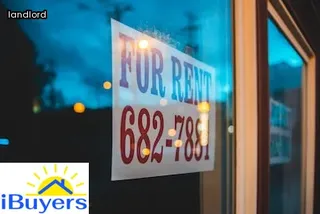
Property management is an important part of being a landlord in Arizona, and there are several tips landlords should keep in mind to help them navigate landlord-tenant disputes over damages to property. First and foremost, it’s essential for landlords to clearly and openly communicate with tenants about any damage that occurs during the tenancy.
Landlords should document all conversations regarding damages, including dates and times of repair requests from tenants. Additionally, landlords should create an itemized list of each item in the rental property when the tenant moves in and enter into a written agreement about who is responsible for what repairs.
Landlords should also be sure to provide tenants with copies of their lease agreements so they have a clear understanding of the rules around damages. Additionally, landlords should go beyond just repairing or replacing damaged items; they must proactively monitor their properties for potential safety issues or other problems that can lead to further damage.
Finally, if necessary, landlords should consider hiring a qualified legal professional to help them navigate any disputes or disagreements with tenants surrounding damage to property.
Having clear expectations with tenants is essential for navigating landlord-tenant disputes in Arizona. It is important for both the landlord and tenant to be aware of their responsibilities and rights under Arizona law.
A good starting point is a signed lease agreement, which should include details such as payment deadline and grace period, deposit amounts, pet policies, maintenance procedures and any other relevant information. The lease agreement may also provide guidance on how damages to property will be handled.
In addition to having a written agreement, landlords should make sure that tenants are aware of all the rules and regulations associated with their rental units. This includes informing them of any changes or updates to the lease terms.
Additionally, it is important that landlords are responsive to tenant inquiries and concerns in a timely manner so that potential issues can be addressed before they become major disputes. Ultimately, by establishing clear expectations with tenants right from the start, landlords can help avoid costly legal battles down the road.
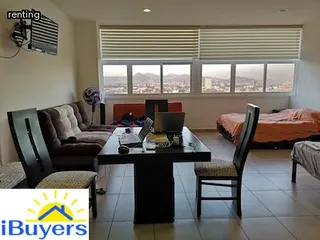
It is vital for Arizona landlords and tenants to document the condition of rental property before occupancy to avoid potential disputes.
A good practice for both parties is to conduct a walk-through of the unit and identify any existing damage, and then create an itemized list that includes a description of the condition as well as accompanying photos or videos.
Additionally, it is important for landlords to provide tenants with written documentation that outlines the agreed-upon rental terms so that both parties are aware of the responsibilities and expectations for damages to the property.
By taking these steps, landlords and tenants in Arizona can ensure that they are prepared should any landlord-tenant disputes arise regarding damages to property.
When it comes to navigating landlord-tenant disputes in Arizona, investigating the cause of damage and responsibility is key. It is important to determine who is responsible for damages that occur during a tenancy.
Whether the tenant or the landlord is liable depends on the circumstances surrounding the incident. If the damage was caused by normal wear and tear, then it would be the responsibility of the landlord to repair or replace.
However, if it can be proven that damage was intentional or due to negligence by either party, then they may bear liability for repairs. Tenants should also be aware of any limitations on liability as outlined in their lease agreement.
It is important to understand these restrictions before signing any document related to rental property. Lastly, both landlords and tenants should document any evidence of damages before initiating a dispute resolution process in order to ensure that they are not held responsible for costs associated with damage not caused by them.

Navigating landlord-tenant disputes in Arizona can be difficult when there is property damage involved. It is important to understand the rights and responsibilities of both parties in order to reach an appropriate resolution.
Property damage can range from minor to significant, and it is essential for tenants and landlords to know what their options are for repairing or replacing the damaged property. Depending on the situation, either the tenant or the landlord may need to pay for damages, so understanding applicable laws and regulations is critical.
If a tenant has caused damage that requires repairs or replacement, they may need to pay for all costs associated with the repair or replacement. In some cases, a landlord may not be able to recover their losses from a tenant if it was not specified in the lease agreement that damages must be paid for.
Landlords should also ensure that their insurance covers any damages that occur on their property as this can help minimize financial losses associated with property damage incidents. Ultimately, both parties should strive to come up with an appropriate solution by understanding their respective rights and obligations under Arizona law.
When it comes to landlord-tenant disputes in Arizona, insurance coverage can provide an important layer of protection for both parties. Landlords should consider purchasing rental property insurance, which helps protect against financial losses due to damages caused by tenants.
Tenants should consider renters insurance, which provides coverage for their possessions in case of theft or damage. It's also a good idea for both landlords and tenants to review their existing policies to make sure they are up-to-date and have adequate coverage.
Additionally, landlords may wish to require tenants to carry a certain amount of liability insurance as part of their lease agreement to help cover any potential legal expenses stemming from the dispute. By taking these proactive steps and understanding both their rights and responsibilities, landlords and tenants can better navigate any issues surrounding tenant-landlord disputes in Arizona.
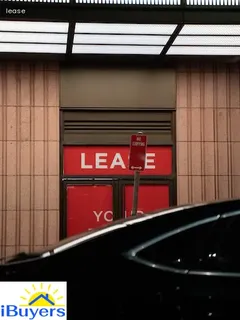
Filing a small claims court claim against your tenant is one way to resolve a landlord-tenant dispute in Arizona. It's important to understand the process for filing a small claims case against a tenant before initiating, as this is the legal pathway for landlords seeking compensation for damages to their property.
To begin, gather any evidence of damage and calculate the cost of repairs or other expenses that you are seeking from the tenant. This should include any rental agreement between yourself and the tenant, photos or videos of the damage, receipts for supplies needed to repair or replace items, and any witness statements or testimonies backing up your claim.
You must also make sure that you are filing your claim within Arizona's statute of limitations. Once all documents and evidence have been compiled, you will need to fill out an official complaint form with the Small Claims Court Office in your county.
The form will require information such as a brief statement of facts and monetary damages being sought by you. Once submitted, a court date will be set where both landlord and tenant can present their cases before an impartial judge who will decide on how much money should be awarded if applicable.
Navigating landlord-tenant disputes in Arizona can be a difficult task. When it comes to financial compensation from the tenant, it is important for landlords to understand the rights and responsibilities of both parties when it comes to damages to property.
In Arizona, landlords have the right to collect for damages that are considered beyond normal wear and tear, such as malicious destruction or vandalism. Landlords may also be able to collect from tenants who fail to pay rent or utility bills.
However, they must follow specific procedures according to state law in order to ensure that they are within their legal rights. This includes providing written notice of any damages and giving the tenant time to remedy them before pursuing legal action.
Furthermore, landlords should have a clear understanding of what constitutes "reasonable" repair costs so that they do not overcharge a tenant for damages. Finally, if a landlord is successful in recovering costs from the tenant, those funds can then be used to repair the property or replace damaged items.
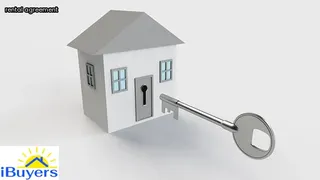
In the state of Arizona, tenants are expected to take good care of their rental property and any damages to the property can result in eviction. Landlords have the right to file for eviction if a tenant fails to repair or replace damaged property.
In some cases, the landlord may choose to forgive minor incidents of damage, but major or repeated damages could lead to an eviction notice. In these cases, tenants should be aware of their specific rights and obligations according to Arizona law.
For example, landlords must provide at least a five-day notice before filing for eviction due to property damage. They must also provide evidence that the tenant is responsible for the damage in question, such as photographs or repair estimates.
Additionally, tenants may be able to contest an eviction if they can show that they attempted to fix any damage before it became a problem or if they can prove it was caused by something outside of their control. It is important for both landlords and tenants to understand how evictions due to property damage work in Arizona so they can properly navigate any disputes that may arise.
Navigating landlord-tenant law in Arizona can be complex, especially when dealing with property damage. It is important to understand the rights and responsibilities of both the tenant and the landlord during these disputes.
Tenants have the right to expect their residential premises remain safe and habitable, as outlined in Arizona’s Landlord Tenant Act. On the other hand, landlords have a right to expect tenants will take care of the property they are renting, including any repairs that may be needed due to damages caused by them or their guests.
Both parties should thoroughly review their rental agreement prior to filing a claim for damages. Generally speaking, if the tenant caused damages beyond normal wear and tear, they are liable for all costs associated with repair or replacement.
If a landlord decides to withhold security deposits from a tenant upon move out due to damages, they must provide written notice within 14 days of termination of tenancy detailing exactly why it was withheld along with any supporting evidence. It is also important for tenants and landlords alike to be aware of local regulations governing justifiable reasons for eviction as well as time limits on making repairs after an incident has occurred.
As such, understanding Arizona’s laws surrounding property damage is crucial for navigating landlord-tenant disputes successfully.

Navigating landlord-tenant disputes in Arizona can be a difficult task, especially when it comes to determining how much it will cost to repair any damages to property. It is important for both parties to understand the laws and regulations regarding repairs for damaged property and the costs associated with them.
In many cases, landlords are responsible for paying for any necessary repairs that are deemed normal wear and tear. However, if the damage is caused by the tenant’s negligence or intentional acts, they may be held liable for covering the costs of repair.
In most cases, landlords must provide tenants with an itemized list of all expenses associated with repairing any damage done to their rental property. The tenant then has 14 days from receiving this list to dispute any discrepancies or request further information about charges before being required to pay for repairs.
Additionally, tenants may be eligible for reimbursement of a portion of their security deposit if certain conditions were not met during their tenancy such as failing to perform necessary repairs in a timely manner or failing to meet health and safety standards set by state law. It is important that both parties understand their rights and responsibilities when it comes to damages done to property so they can avoid future disputes and costly litigation fees.
When navigating the complex legal system of landlord-tenant disputes in Arizona, having an experienced attorney can be a tremendous asset. Working with an attorney can help to ensure that any damages to rental property are addressed properly, and that both tenants and landlords are treated fairly when it comes to mitigating losses.
In many cases, attorneys can help to mediate between the parties involved, negotiating appropriate compensation for damaged items or repairs that need to be made. Additionally, they can review existing contracts or laws pertaining to rental properties and provide guidance on how best to proceed in order for the tenant and landlord to reach a mutually beneficial outcome.
It is important for both tenants and landlords in Arizona who have encountered issues regarding damage done to rental property to seek out qualified legal representation as soon as possible in order to resolve their dispute quickly and efficiently.

When navigating landlord-tenant disputes in Arizona, it is important to understand the difference between intentional and accidental damage. Intentional damage occurs when a tenant or guest of the tenant intentionally causes harm to the property.
This could be something as simple as punching a wall or breaking a window. Accidental damage is caused by something unintentional, like water damage from a leaky pipe or an accident that results in broken furniture.
While intentional damage can result in eviction and other penalties, accidental damage can usually be repaired with relative ease depending on the severity. It's important for both tenants and landlords to know what constitutes intentional and accidental damages so they can properly address potential disputes.
Knowing this information ahead of time can help both parties avoid costly mistakes and lengthy disputes.
When navigating landlord-tenant disputes in Arizona, it is important for both parties to consider settling the dispute out of court. In such cases, evaluating reasonable security deposits for protection against damages is key.
Security deposits can help mitigate potential losses from damages to the property caused by tenants. Landlords should ensure that the amount of the security deposit is not excessive, and tenants should be aware that they are legally responsible for any damage beyond normal wear and tear while occupying a rental property.
Furthermore, landlords must provide advance notice before entering the tenant's space, adhere to state laws regarding tenant rights, and itemize deductions made from the security deposit after a tenant moves out. Likewise, tenants should keep accurate records of all payments made to their landlord as well as document any repairs made during their occupancy.
By taking these considerations into account when addressing landlord-tenant disputes in Arizona, both parties can work together to avoid costly court proceedings and resolve matters amicably.

Navigating landlord-tenant disputes in Arizona can be a tricky situation for both parties involved. It is important to ensure that the rights of both landlords and tenants are respected throughout the process.
In cases of damage to property, there are several steps that need to be taken in order to reach a fair resolution. Landlords should first assess the damages, document any proof of repair costs and discuss the issue with their tenant, offering solutions where possible.
Tenants should take responsibility for any damage caused and agree to repair or replace any items at their own expense. If an agreement cannot be reached between landlord and tenant regarding damages, both parties should seek legal advice from an expert in Arizona landlord-tenant law, as this will help ensure that all parties receive fair treatment under the law.
There may also be additional resources available through local housing authorities if needed. With proper understanding of the applicable laws and regulations concerning landlord-tenant disputes in Arizona, both landlords and tenants can work together towards a satisfactory resolution.
As a landlord, it is important to be proactive in preventing tenant damage to your property.
Taking the following preventative measures can help you avoid future incidences of tenant damage: clearly communicate expectations in the rental agreement; conduct a thorough inspection of the premises before and after tenancy; establish a clear policy regarding repairs and damages that outlines who is responsible for what; keep records of all repair and maintenance requests; provide tenants with a list of acceptable repair options should they cause any damages; and document any violations or breaches of the rental agreement.
Additionally, staying up-to-date on Arizona landlord-tenant laws can help protect landlords against tenant disputes.
Knowing the state's laws on security deposits, late payments, evictions, and other areas related to tenant-landlord relations can help landlords navigate potential disputes more effectively.
In Arizona, a landlord must follow specific protocols when it comes to charging for damages to a property. In most cases, the landlord is allowed to charge for damages if they are proven to be beyond normal wear and tear that the tenant caused while living in the rental.
Painting is an example of a repair that can potentially be charged to the tenant after they move out if there is proof of damage beyond normal wear and tear. The Arizona Residential Landlord and Tenant Act outlines what charges landlords can make against tenants for painting or other repairs due to damages.
Generally, if a landlord wants to charge for painting after a tenant moves out, they must provide evidence that the paint job was necessary due to damage caused by the tenant and not just for general wear and tear. It is also important for landlords in Arizona to understand that they may not charge tenants more than their security deposit covers when it comes to damages, so it’s essential that landlords document all charges before requesting payment from their former tenants.
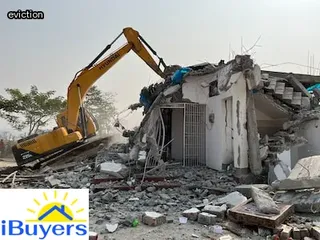
In Arizona, the definition of normal wear and tear on a rental property is based on the age of the item in question, how it was used, and how much life expectancy is reasonable for its age. In general, normal wear and tear includes minor scratches, dents, fading paint or wallpaper, and other small damages that occur over time as a result of regular use.
Landlords should understand that small scuffs on walls or floors are considered normal wear and tear and cannot be charged to tenants for repair. Additionally, landlords should recognize that certain items may need to be replaced more often than others due to heavy usage; examples include carpets, blinds, curtains, or appliances.
Tenants should not be held responsible for any damage beyond what is considered normal wear and tear in Arizona.
ARS Section 33-1375 is an Arizona law that governs landlord-tenant disputes and covers damages to property. The law states that tenants must give notice to the landlord when they are terminating the lease or rental agreement.
It also requires landlords to make reasonable attempts to mitigate their damages if the tenant has damaged the property. Furthermore, if a tenant causes damage beyond normal wear and tear, then ARS Section 33-1375 allows landlords to charge the tenant for those damages after deducting any security deposits held by the landlord.
The statute also provides guidance on how to handle cases where tenants abandon property in a rented unit, allowing landlords to dispose of it in certain ways without having to go through a court eviction proceeding. Lastly, it sets out procedures for when landlords are entitled to terminate leases due to nonpayment of rent or other breaches of contract.
This law is essential for both tenants and landlords alike as it provides clarity on what their rights are when dealing with one another over matters such as repairs and damages.
In Arizona, landlords and tenants should be aware of the legal obligations they have to each other. Unsafe living conditions can create a dangerous environment for tenants and must be addressed in accordance with state law.
In general, an unsafe living condition may include a lack of proper ventilation, inadequate security, problems with plumbing or electricity, infestations of pests or rodents, mold growth, or any other hazardous condition that could cause physical harm to the tenant. Landlords must take action to remedy any situation that might potentially put their tenants in danger.
If a landlord fails to do so and a tenant is injured as a result of an unsafe living condition, the tenant may be entitled to compensation from the landlord. It is important for both landlords and tenants in Arizona to understand their rights and responsibilities when it comes to navigating landlord-tenant disputes concerning damages to property caused by unsafe living conditions.